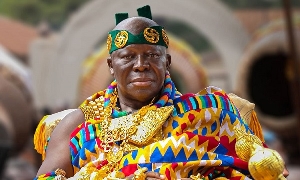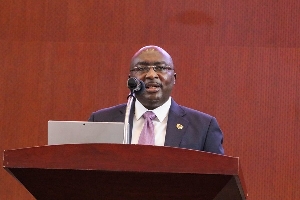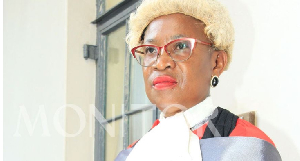General News of Tuesday, 4 November 2003
Source: GNA
Witness pleads for retrieval of car at NRC
Accra, Nov. 4, GNA - A witness, Mr. Solomon Aggrey, who appeared before the National Reconciliation Commission (NRC) on Tuesday pleaded with it to retrieve his Peugeot Caravan seized in 1989 as well as to pay him the 14 years sales he would have accrued if he was working with the vehicle.
He said, he was a staff of Cocoa Board from 1970 to 1989, adding that he used his benefits paid him after he resigned from the company to buy the vehicle, which he used on commercial basis plying Asamankese and Accra.
Mr. Aggrey said Mr. William Boateng, District Secretary seized the vehicle on the basis that his (Aggrey's) brother, who was the cashier of the District Assembly had embezzled some money, adding that Mr. Aggrey bought the vehicle with the money his bother embezzled.
He said after persistent appeal for his vehicle to be released without any success, he reported the case to Mr. Ebo Tawiah, then with the Trades Union Congress in 1991 who gave a note for his vehicle to be released.
The Witness said when they finally agreed to give him his car, he realized that it was damaged, adding that an Engineer estimated that the work to be done would cost two million cedis and asked that it should be repaired before giving it back to him.
He said Mr. Boateng refused to repair the car, saying that it was still in the custody of the Asamankese District Assembly.
Mr. Michael Gbenu, formerly working with the GNTC Heavy Equipment Division as a mechanic said soldiers seized about 435 gallons of locally brewed gin he was selling at Maamobi in Accra.
He said he resigned from his job and used his benefits to establish the drinking bar, adding that during the December 31, 1979 coup, the soldiers packed all his drinks to the Gondar Barracks for allegedly hoarding.
The Witness said he was taken to the Gondar Barracks and was severely beaten as a result of which he received scratches on his body, suffered waist pains and his hypertension got worse.
He said he spent seven days at the barracks sleeping on the bare floor, adding that he was drilled every morning by carrying blocks. Mr Gbenu said nothing was given back to him after he was released, and this led to the collapse of his business resulting in his four children not able to complete primary school.
He appealed to the Commission to support him financially.











